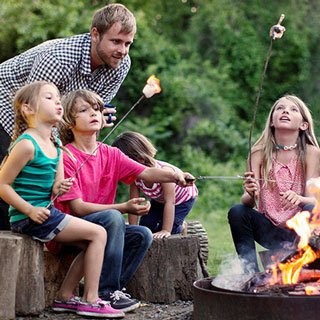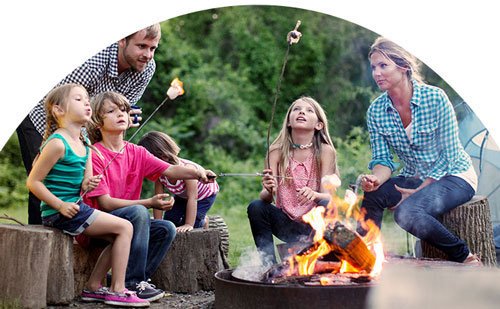10 ways to love your neighbor and spread kindness every day
Loving your neighbor is fundamental in many religious and ethical traditions, particularly Christianity. This commandment encourages individuals to extend compassion, kindness, and respect to those around them, regardless of their background or circumstances.

At its core, loving your neighbor means treating others with the same care and consideration you would want for yourself. This involves practicing empathy, offering support during difficult times, and actively seeking ways to improve the lives of those in your community.
The biblical call to love your neighbor is rooted in Jesus Christ's teachings, which emphasize the importance of this principle alongside loving God. This dual commandment forms the foundation of Christian ethics. It serves as a guide for how believers should interact with others in their daily lives.
Practically, loving your neighbor can manifest in various ways, such as:
- Offering assistance to those in need.
- Showing respect and kindness in all interactions.
- Volunteering in community service projects.
- Advocating for social justice and equality.
- Practicing forgiveness and reconciliation.
1. Greet your neighbor with genuine kindness
Establishing positive relationships with your neighbors often begins with simple, genuine acts of kindness. Greeting them with a warm smile, a friendly wave, or a brief, cordial exchange can go a long way in cultivating a welcoming and neighborly atmosphere. These small gestures of friendliness help build a sense of community and camaraderie within the local area.
Offer to help with small tasks
Considering offering assistance to your neighbors with minor tasks can be an excellent way to strengthen relationships and demonstrate your willingness to lend a helping hand. Things like bringing in their trash cans, shoveling snow from their driveway, or watering their plants while they're away are simple acts that can have a meaningful impact. These small gestures of kindness can foster a greater sense of community and mutual support among neighbors.
Respect noise levels and privacy
Being mindful of noise levels, especially during early morning or late evening hours, is essential to being a considerate neighbor. Respecting your neighbors' privacy by avoiding peering into their windows or lingering near their property without invitation can also help maintain harmonious relationships. Prioritizing these considerations demonstrates your respect for your neighbors' comfort and well-being.
Keep your property tidy
Maintaining a well-kept yard and the exterior of your home improves the neighborhood's overall appearance. It shows respect for your neighbors and their property values.
Participate in community events
Attending or organizing neighborhood gatherings, block parties, or community cleanup events can be an excellent way to foster a stronger sense of community and provide opportunities to connect with your neighbors in a relaxed, social setting.
Participating in these types of events can help build relationships, facilitate the exchange of information, and promote a greater sense of shared ownership and investment in the local area.
2. Offer to help with yard work or chores
Helping neighbors with yard work, assisting elderly neighbors, finding ways to help busy neighbors, and volunteering to assist with yard work or household chores can be a great way to support your neighbors and build community spirit.
For elderly neighbors, this could include mowing lawns, raking leaves, or shoveling snow during winter months. These tasks can be physically demanding and potentially dangerous for older individuals.
For busy neighbors, consider offering to help with time-consuming chores like watering plants, collecting mail during vacations, or even babysitting children for a few hours. You could also propose a neighborhood cleanup day, where everyone works together to improve common areas.
Remember to approach your offers of help respectfully and be mindful of your neighbors' preferences. Some may welcome the assistance, while others might prefer their independence. Always clearly communicate what you're willing to do and how long to avoid misunderstandings and ensure a positive experience for everyone involved.
These acts of kindness help your neighbors and foster community and mutual support. Consider creating a neighborhood skills exchange program where residents can offer their expertise or time in various areas. This could include gardening tips, minor home repairs, or professional skills like accounting or legal advice.
For families with young children, offering to organize a neighborhood playgroup or after-school activities can be a tremendous help. This not only assists busy parents but also creates opportunities for children to socialize and build friendships within the community.
During extreme weather events or emergencies, check on vulnerable neighbors and offer assistance with preparations or cleanup. This could involve helping to secure outdoor furniture before a storm, providing temporary shelter, or sharing resources like generators or food supplies.
Establish a rotating schedule for community service tasks to make these efforts more sustainable. This will ensure the responsibility is shared among willing neighbors and prevent burnout.
You could also use digital tools or apps to coordinate these activities, making it easier for people to volunteer or request help when needed. Remember that building a supportive neighborhood takes time and consistency.
Start small, be patient, and celebrate the positive changes that result from these collective efforts. Your community will become more resilient, connected, and enjoyable as trust and relationships grow.
Establishing a strong community bond with your neighbors can significantly enhance neighborhood security. When residents are vigilant and communicate regularly with one another, it creates an informal yet effective neighborhood watch system. This can be particularly beneficial when homeowners are on vacation or during extended absences, as neighbors can monitor each other's properties.
Some practical ways to watch out for your neighbor's home include collecting their mail and newspapers to prevent any buildup, which could signal an empty house.
Reporting suspicious activity or unfamiliar vehicles to the appropriate authorities is also crucial, as this helps maintain vigilance and deter potential criminal behavior.
Offering simple tasks like mowing their lawn or shoveling snow can also help maintain a lived-in appearance and deter would-be intruders. Furthermore, watching your neighbor's property during severe weather events, such as heavy storms or natural disasters, can be invaluable.
By working together and looking out for one another, neighbors can create a safer environment for the entire community. This approach helps deter potential criminal activity and fosters community and belonging among residents, strengthening the neighborhood's social fabric.
4. Share meals and baked goods
Bringing food, sharing meals, and homemade baked goods for neighbors can foster a sense of community and warmth among neighbors. When preparing meals or baking treats, consider making extra portions to share with those living nearby.
This gesture is incredibly thoughtful for new residents, elderly neighbors, or families going through challenging times. Organize potluck dinners or block parties where everyone brings a dish to share. These gatherings provide an excellent opportunity for neighbors to mingle, exchange recipes, and strengthen social bonds.
For those who enjoy baking, surprising neighbors with freshly baked cookies, pies, or bread can brighten their day and create a welcoming atmosphere in the neighborhood.
Remember to be mindful of dietary restrictions or allergies when sharing food. Including a list of ingredients with your offering can be helpful and considerate. By sharing meals and baked goods, you nourish your neighbors and cultivate a spirit of generosity and connection within your community.
Offer help with yard work or home maintenance
Lending a hand with outdoor tasks or minor home repairs can significantly support your neighbors. This is particularly valuable for elderly residents, those with physical limitations, or busy families who might struggle to keep up with such chores.
Consider offering to mow lawns, rake leaves, or shovel snow during winter months. If you have DIY skills, you could volunteer to help with minor repairs or painting projects.
Organizing a neighborhood cleanup day can also be an excellent way to improve the community's appearance while working together. This activity beautifies the area and allows neighbors to interact and collaborate toward a common goal.
Consider starting a tool-sharing program. In this program, neighbors can borrow equipment they don't own, fostering a culture of mutual support and resource sharing.
Always ask before helping with yard work or repairs, as some people may prefer to handle these tasks themselves. By offering assistance, you're helping maintain the neighborhood's appearance and building stronger relationships and a sense of community care.
5. Invite neighbors for coffee or a meal
Hosting neighbors, getting to know neighbors better, building community, and neighborhood gatherings. Organizing a casual coffee morning or potluck dinner can be an excellent way to strengthen neighborhood bonds.
When planning such an event, consider choosing a neutral location like a community center or a local park if you're uncomfortable hosting at home. Encourage attendees to bring a dish to share, which can spark conversations about cultural backgrounds and family recipes.
Distribute invitations through various channels, such as community bulletin boards, social media groups, or door-to-door flyers, to ensure a diverse turnout. Facilitate introductions and encourage mingling during the gathering by organizing simple icebreaker activities. This can help overcome initial awkwardness and foster genuine connections.
With attendees' permission, consider creating a neighborhood directory or contact list for future events and emergencies. Remember that building a solid community takes time and consistent effort. Regular gatherings, even if small, can gradually create a sense of belonging and mutual support among neighbors.
6. Pray for your neighbors' needs
Praying for your neighbors' needs is a powerful way to show love and support for those around you. Begin by taking the time to learn about your neighbors' struggles, concerns, and aspirations. This can be done through casual conversations or simply observing their situations.
Once you know their needs, set aside time each day to intercede. This could involve praying for their health, financial stability, relationships, or any specific challenges they may be facing.
Consider keeping a prayer journal to track your neighbors' prayer requests and any answers or developments you notice. You can also organize prayer walks around your neighborhood, silently lifting up each household as you pass by.
Another approach is forming a neighborhood prayer group, where residents can gather regularly to share concerns and pray. Remember that prayer is about asking for things and expressing gratitude for the positive aspects of your community and neighbors' lives.
7. Be a listening ear and offer encouragement
Actively listen to your neighbors when they share their concerns or challenges. Provide a non-judgmental space for them to express themselves and feel heard. Offer words of encouragement and support, acknowledging their feelings and experiences.
Share positive affirmations and motivational messages to boost their spirits during difficult times. Consider organizing support groups or community circles where neighbors can share experiences and offer mutual support. This can foster a sense of belonging and create a care network within the neighborhood.
Additionally, recognize and celebrate your neighbors' achievements, no matter how small, to reinforce positivity and community spirit. Remember that sometimes, being present and showing that you care can make a significant difference in someone's life.
You can build a stronger, more resilient community where neighbors feel valued and supported by cultivating empathy and encouragement.
8. Respect your neighbor's property and privacy
Respecting your neighbor's property and privacy is crucial for maintaining a harmonious community. This includes refraining from entering their property without permission, keeping noise levels down during quiet hours, and avoiding actions that may infringe on their personal space.
Be mindful of shared spaces, such as fences or driveways, and discuss any changes or maintenance that might affect both properties. Privacy concerns should also be addressed by avoiding excessive peering into their windows or yards and respecting their right to enjoy their home without feeling watched.
If you have security cameras, ensure they are positioned to capture only your property. When engaging in outdoor activities, be aware of potential noise or visual disturbances affecting your neighbors.
Open communication is crucial in resolving any issues that may arise. If conflicts occur, approach your neighbor calmly and diplomatically to find mutually agreeable solutions. By consistently demonstrating respect for your neighbor's property and privacy, you contribute to a positive living environment for everyone in the community.
9. Volunteer together in the community
Volunteering together in the community is an excellent way to foster neighborhood unity and make a positive impact. Organize group activities such as local park cleanups, food drives for local shelters, or helping at community gardens.
These shared experiences benefit those in need and create opportunities for neighbors to interact and form stronger bonds. Consider establishing a neighborhood volunteer committee to coordinate regular service projects. This group can identify local needs, plan events, and recruit participants.
By working on meaningful projects, neighbors can develop a sense of shared purpose in their community. To promote intergenerational connections, encourage participation from all age groups, including families with children.
Volunteering together helps newcomers integrate into the neighborhood more easily. Remember to celebrate your collective achievements and share stories of your volunteer experiences to inspire continued engagement and strengthen community ties.
10. Celebrate milestones and holidays together
Organizing community events around important milestones and holidays can significantly strengthen neighborhood bonds. Consider hosting block parties for major holidays like Independence Day or New Year's Eve, where everyone can contribute strong food and activities.
Establish annual traditions such as a neighborhood yard sale, community summer barbecue, or a winter holiday lights competition to create shared experiences. Recognize individual milestones within the community as well.
Organize welcome parties for new residents and retirement celebrations for long-time neighbors. This can increase cooperation or group congratulations for academic and professional achievements. These gestures show that the neighborhood cares about its members' personal successes.
Encourage the creation of a neighborhood newsletter or social media group to inform everyone about upcoming celebrations and to share photos and memories from past events. This digital space can also serve as a platform for residents to suggest new community-gathering ideas. By consistently coming together for both communal and personal celebrations, neighbors develop a sense of belonging and shared history.
Here's the truth: By fostering connections and cultivating a spirit of neighborly support, we can collectively work to address the challenges faced by our local communities.
Rather than feeling overwhelmed by the enormity of societal problems, we are encouraged to start small—to reach out to those closest to us, lend a helping hand, listen, and offer compassion.
Through these incremental acts of kindness and civic participation, we lay the groundwork for more widespread transformation. "Making a difference one neighbor at a time" is an empowering call to action.
It reminds us that we can contribute positively to our communities, no matter how modest our individual efforts may seem.
By embracing this mindset and putting it into practice, we can collectively cultivate the connections, understanding, and collective will needed to enact meaningful, lasting change.





















































